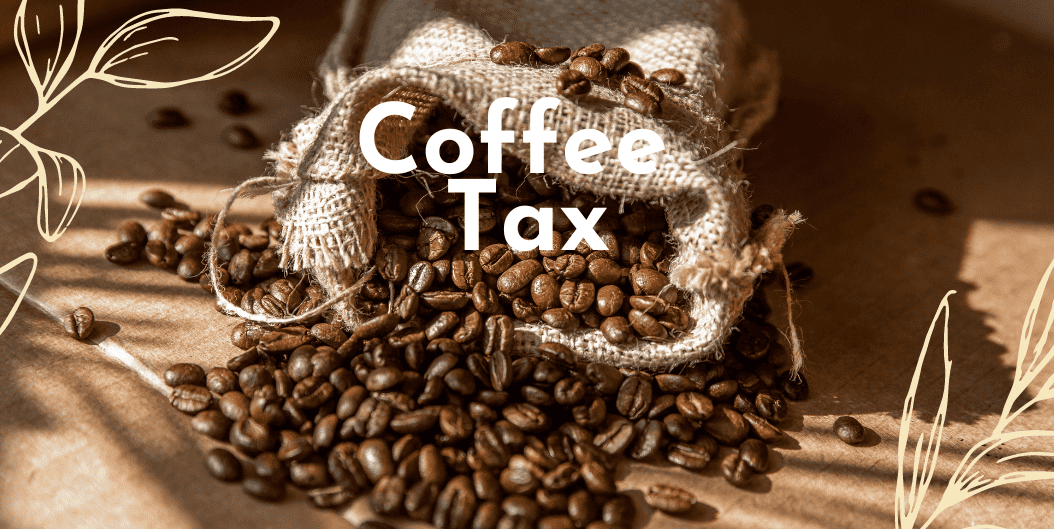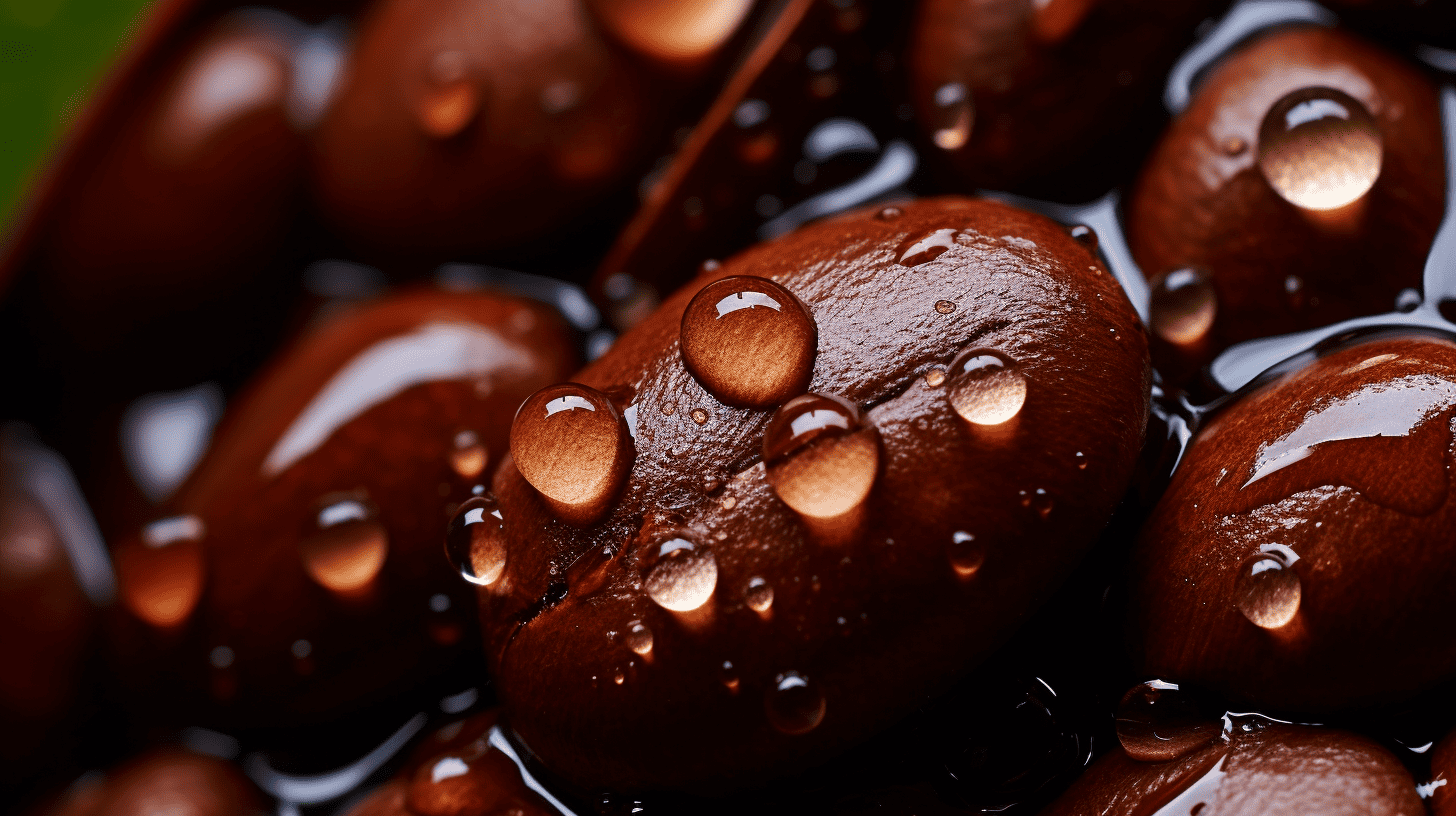As a coffee lover, I have often wondered, is coffee is taxed at grocery stores? After all, coffee is a staple for many people, and it would be helpful to know whether any additional costs are associated with purchasing it.
After conducting some research, I have found that the answer to this question varies depending on the state and the type of coffee being purchased. In some states, coffee is taxed at the same rate as other groceries, while in others, it may be subject to additional taxes. Additionally, the taxability of coffee may depend on whether it is brewed or sold in a pre-packaged form.
States that Coffee is Taxed On at Grocery Stores
| State/City | Sales Tax on Groceries | Tax on Coffee in Grocery Stores | Specific Tax on Sugary Drinks |
|---|---|---|---|
| Oregon | No Sales Tax | No Tax | Not Applicable |
| Pennsylvania | Not Taxed | No Tax | Not Applicable |
| California | Not Taxed | No Tax | Not Applicable |
| Seattle | Not Specified | Not Specified | 1.75 cent/ounce |
| Philadelphia | Not Specified | Not Specified | 1.5 cent/ounce |
| Georgia | Not Taxed | No Tax | Not Applicable |
| Virginia | Not Taxed | No Tax | Not Applicable |
| Alabama | 4% | Taxed | Not Applicable |
| Illinois | 1% | Taxed | Not Applicable |
| Indiana | 7% | Taxed | Not Applicable |
| Colorado | 2.9% | Taxed | Not Applicable |
| Kentucky | 6% | Taxed | Not Applicable |
| Louisiana | 5% | Taxed | Not Applicable |
| Arkansas | 1.5% | Taxed | Not Applicable |
| Florida | 6% | Taxed | Not Applicable |
| Montana | No Sales Tax | No Tax | Not Applicable |
| Alaska | No Sales Tax | No Tax | Not Applicable |
| Delaware | No Sales Tax | No Tax | Not Applicable |
| Maine | 5.5% | Taxed | Not Applicable |
| Hawaii | 4% | Taxed | Not Applicable |
| Iowa | 6% | Taxed | Not Applicable |
| Missouri | 4.225% | Taxed | Not Applicable |
| Nevada | 6.85% | Taxed | Not Applicable |
| Texas | 6.25% | Taxed | Not Applicable |
| Washington | 6.5% | Taxed | Not Applicable |
| Wisconsin | 5% | Taxed | Not Applicable |
| Wyoming | 4% | Taxed | Not Applicable |
| New Hampshire | No Sales Tax | No Tax | Not Applicable |
Please note that “Taxed” in the “Tax on Coffee in Grocery Stores” column implies that the general sales tax on groceries also applies to coffee. And “Not Taxed” in the “Sales Tax on Groceries” column implies that groceries, including coffee, are not subject to sales tax. For Seattle and Philadelphia, the sales tax on groceries and coffee was not specified, but they do have a specific tax on sugary drinks. Tax rates are subject to change and may be out of date above.
What is Sales Tax?
As a consumer, I am sure that I have noticed sales tax on my receipts when making purchases. But what exactly is sales tax?
Sales tax is a type of tax that is imposed on the sale of goods and services. It is usually a percentage of the sale price and is collected by the seller at the time of purchase. The tax is then remitted to the government by the seller.
Each state has its own sales tax rate, varying from 0% to over 10%. In addition to state sales tax, there may also be local sales taxes, which are imposed by cities, counties, or other local jurisdictions.
Sales tax is a regressive tax, which tends to affect lower-income individuals more than higher-income individuals. This is because lower-income individuals tend to spend a higher percentage of their income on goods and services that are subject to sales tax.
Some goods and services, such as food and prescription drugs, are exempt from sales tax. However, the rules for what is exempt can vary by state, and there may be exceptions to the exemptions.
Overall, sales tax is an essential source of revenue for state and local governments, and it is something that consumers should be aware of when making purchases.
What is Food and Beverage Tax?
As someone who frequents grocery stores, I’m sure you’ve noticed that some items are taxed while others are not. This is because of the food and beverage tax, which is a tax on certain food and beverage items sold by food stores and similar establishments.
Generally, food items considered necessities are not taxed, while luxury or non-essential items are taxed. For example, most states exempt basic groceries like fruits, vegetables, and meats from sales tax, but candy, soda, and other sugary drinks are usually taxed.
The food and beverage tax can vary depending on the state, city, or county. Some states have a flat rate for all food and beverage items, while others have different tax rates for different types of items.
Here are some examples of food and beverage items that may or may not be taxed:
Taxable Items
- Candy and confectionery
- Soft drinks, fruit drinks, sodas, or similar beverages
- Heated or prepared meals (sandwiches, salad bars, etc.)
- Food or beverage sold for on-premises consumption
Non-Taxable Items
- Basic groceries like fruits, vegetables, and meats
- Milk and dairy products
- Bread and other baked goods
- Canned and frozen foods
It’s important to note that some states have exemptions or preferential rates for certain food items. For example, some states may tax candy and soda at a lower rate than other luxury items.
Overall, the food and beverage tax allows states and local governments to generate revenue while encouraging healthier food choices. As a consumer, it’s important to be aware of which food and beverage items are taxed and which are not.
State-Specific Tax Laws
As I researched the tax laws for coffee in grocery stores, I found that the laws vary from state to state. Here are some of the state-specific tax laws that I found.
Oregon
In Oregon, there is no sales tax, so coffee is not taxed in grocery stores.
Pennsylvania
In Pennsylvania, coffee is not subject to sales tax if it is sold in a grocery store and is not hot.
California
In California, coffee is not taxed if it is sold in a grocery store and is not hot.
Seattle
In Seattle, there is a 1.75 cent per ounce tax on sugary drinks, which includes sweetened coffee drinks.
Philadelphia Beverage Tax
In Philadelphia, there is a 1.5 cent per ounce tax on sugary drinks, which includes sweetened coffee drinks.
Georgia
In Georgia, coffee is not subject to sales tax if it is sold in a grocery store and is not hot.
Virginia
In Virginia, coffee is not subject to sales tax if it is sold in a grocery store and is not hot.
Alabama
In Alabama, groceries are subject to a 4% sales tax, which includes coffee sold in grocery stores.
Illinois
In Illinois, groceries are subject to a 1% sales tax, which includes coffee sold in grocery stores.
Indiana
In Indiana, groceries are subject to a 7% sales tax, which includes coffee sold in grocery stores.
Colorado
In Colorado, groceries are subject to a 2.9% sales tax, which includes coffee sold in grocery stores.
Kentucky
In Kentucky, groceries are subject to a 6% sales tax, which includes coffee sold in grocery stores.
Louisiana
In Louisiana, groceries are subject to a 5% sales tax, which includes coffee sold in grocery stores.
Arkansas
In Arkansas, groceries are subject to a 1.5% sales tax, which includes coffee sold in grocery stores.
Florida
In Florida, groceries are subject to a 6% sales tax, which includes coffee sold in grocery stores.
Montana
In Montana, there is no sales tax, so coffee is not taxed in grocery stores.
Alaska
In Alaska, there is no sales tax, so coffee is not taxed in grocery stores.
Delaware
In Delaware, there is no sales tax, so coffee is not taxed in grocery stores.
Maine
In Maine, groceries are subject to a 5.5% sales tax, which includes coffee sold in grocery stores.
Hawaii
In Hawaii, groceries are subject to a 4% sales tax, which includes coffee sold in grocery stores.
Iowa
In Iowa, groceries are subject to a 6% sales tax, which includes coffee sold in grocery stores.
Missouri
In Missouri, groceries are subject to a 4.225% sales tax, which includes coffee sold in grocery stores.
Nevada
In Nevada, groceries are subject to a 6.85% sales tax, which includes coffee sold in grocery stores.
Texas
In Texas, groceries are subject to a 6.25% sales tax, which includes coffee sold in grocery stores.
Washington
In Washington, groceries are subject to a 6.5% sales tax, which includes coffee sold in grocery stores.
Wisconsin
In Wisconsin, groceries are subject to a 5% sales tax, which includes coffee sold in grocery stores.
Wyoming
In Wyoming, groceries are subject to a 4% sales tax, which includes coffee sold in grocery stores.
New Hampshire
In New Hampshire, there is no sales tax, so coffee is not taxed in grocery stores.
Taxability of Coffee
As a frequent coffee drinker, I often wonder about the taxability of coffee at grocery stores. In this section, I will explore the various factors that determine the taxability of coffee and related products.
Taxability of Hot Beverages
Hot beverages, including coffee, are generally taxable when sold for on-premises consumption. However, if the coffee is sold in a container for take-out, it may be exempt from tax. In some states, such as California, the taxability of coffee is affected by the 80-80 rule, which requires that more than 80% of the seller’s gross receipts be from the sale of food products and that more than 80% of the seller’s retail sales of food products be taxable.
Taxability of Cold Prepared Food
Cold prepared food, such as pre-packaged salads or sandwiches, is generally taxable. This includes coffee sold in a container with added sweeteners or flavors.
Taxability of Hot Prepared Food
Hot prepared food, such as coffee sold at a coffee shop or convenience store, is generally taxable. This includes coffee sold in a container and heated at the store.
Prepared Food Exemption
Some states exempt certain types of prepared food from tax, such as food sold for off-premises consumption, unheated bakery products, and raw fruits and vegetables. However, these exemptions may not apply to coffee or other beverages.
80-80 Rule
As mentioned earlier, the 80-80 rule applies in some states to determine the taxability of coffee. This rule requires that more than 80% of the seller’s gross receipts be from the sale of food products and that more than 80% of the seller’s retail sales of food products be taxable.
Taxability of Presweetened Coffee
Presweetened coffee, such as flavored coffee sold in a container, is generally taxable. However, if the coffee is sold in a container without added sweeteners or flavors, it may be exempt from tax.
Coffee and Tea
In some states, coffee and tea are taxed differently. For example, in New York, coffee sold for off-premises consumption is exempt from tax, but tea is taxable.
Starbucks Coffee
Starbucks coffee is generally taxable, as it is considered a prepared food. However, the tax may vary depending on whether the coffee is sold for on-premises consumption or take-out.
In conclusion, the taxability of coffee at grocery stores and other establishments can be complex and varies depending on the state and the specific circumstances of the sale. It is important to be aware of these factors to ensure compliance with tax laws and regulations.
Taxability of Other Food Products
When it comes to the taxability of food products, there are several categories to consider. In this section, I will cover the taxability of candy, bakery items, sweetened beverages, milk products, prepared food, alcoholic beverages, soda, food coloring, dietary supplements, and coupons.
Taxability of Candy
In most states, candy is considered a taxable item. However, some states have specific exemptions for certain types of candy, such as those containing flour or nuts. It is important to check your state’s tax laws to determine the taxability of candy.
Taxability of Bakery Items
Bakery items, such as bread, cakes, and pastries, are generally considered non-taxable. However, if the bakery item is sold with a utensil, such as a knife or fork, it may be considered a prepared food and subject to tax.
Taxability of Sweetened Beverages
Sweetened beverages, such as soda and energy drinks, are typically considered taxable. However, some states have specific exemptions for certain types of sweetened beverages, such as those containing milk or fruit juice.
Taxability of Milk Products
Milk and other dairy products are generally considered non-taxable. However, flavored milk and milk substitutes, such as almond milk or soy milk, may be subject to tax.
Taxability of Prepared Food
Prepared food, such as sandwiches, salads, and hot meals, are generally considered taxable. However, some states have specific exemptions for certain types of prepared food, such as those sold in grocery stores or those intended for home consumption.
Taxability of Alcoholic Beverages
Alcoholic beverages are typically considered taxable. However, some states have specific exemptions for certain types of alcoholic beverages, such as those sold in liquor stores or those intended for home consumption.
Taxability of Soda
Soda is typically considered taxable. However, some states have specific exemptions for certain types of soda, such as those containing natural fruit juice or those sold in vending machines.
Taxability of Food Coloring
Food coloring is generally considered non-taxable. However, if the food coloring is sold as part of a prepared food or beverage, it may be subject to tax.
Taxability of Dietary Supplements
Dietary supplements are typically considered taxable. However, some states have specific exemptions for certain types of dietary supplements, such as those containing vitamins or minerals.
Taxability of Coupons
Coupons are generally not considered taxable. However, if the coupon is used to purchase a taxable item, the tax will be calculated based on the discounted price.
In conclusion, the taxability of food products and beverages can vary depending on the state and the specific item being sold. It is important to check your state’s tax laws to determine the taxability of the items you are selling.
Are There Any Specialty Coffee Shops on Maui with Lower Prices Due to Tax Exemption?
If you’re on the lookout for a heavenly coffee experience on maui without hefty price tags, you might wonder if any specialty coffee shops offer lower prices due to tax exemptions. While tax exemptions might not directly affect coffee prices, Maui does have some specialty coffee shops that offer affordable options along with an exceptional taste. Explore the local coffee scene to discover hidden gems that serve delightful brews without breaking the bank. Unwind and savor a heavenly coffee experience on Maui without worrying about excessive costs.
Conclusion
Based on the research conducted, it can be concluded that the taxability of coffee in grocery stores varies by state. In some states, coffee is exempt from sales tax if it is sold in its natural, unprepared form, while in other states, it is taxable regardless of its form or preparation.
Furthermore, the taxability of coffee can also depend on how it is sold and where it is sold. For example, in some states, coffee sold from vending machines or at certain types of food establishments may be taxable, while in others, it may be exempt.
It is important to note that while coffee may be exempt from sales tax in some states, the sale of coffee can still generate revenue for the state through other means, such as income tax or corporate tax. Additionally, some states may have special tax rules for coffee that is flavored, sweetened, or sold in a certain form, such as iced coffee or coffee pods.
Overall, it is important for consumers and retailers alike to be aware of the tax rules and regulations surrounding the sale of coffee in grocery stores and other establishments. By staying informed and up-to-date on these rules, individuals and businesses can ensure that they are in compliance with the law and avoid any potential penalties or fines.
FAQs on “Is Coffee Taxed at Grocery Stores?”
- Q: Is coffee taxed at grocery stores in all states? A: No, the taxation of coffee in grocery stores varies from state to state. Some states don’t tax groceries at all, while others do apply a sales tax.
- Q: Which states don’t tax coffee sold at grocery stores? A: As of the latest information, states such as Oregon, Pennsylvania, California, Georgia, Virginia, Montana, Alaska, Delaware, and New Hampshire do not tax coffee sold in grocery stores.
- Q: Are there any cities that tax coffee differently? A: Yes, some cities have specific taxes on sugary drinks, which can include sweetened coffee beverages. For example, Seattle and Philadelphia impose per-ounce taxes on sugary drinks.
- Q: How much is the sales tax on coffee in grocery stores in states that do tax it? A: The tax rate varies by state. For instance, it’s 4% in Alabama, 7% in Indiana, and 6.5% in Washington, among others.
- Q: Are there any additional taxes on coffee beverages? A: In some cities, there are additional taxes on sugary beverages, which can include some types of coffee drinks. Seattle, for example, imposes a 1.75 cent per ounce tax, and Philadelphia has a 1.5 cent per ounce tax.
- Q: Does the tax apply to all types of coffee in grocery stores? A: Generally, the tax applies to all coffee sold in grocery stores in states that tax groceries. However, in some states, certain types of coffee like hot coffee or sweetened coffee drinks might be taxed differently.
- Q: Is coffee sold in cafes and restaurants taxed the same way as in grocery stores? A: Not necessarily. The taxation of coffee can vary depending on how and where it’s sold. In some states, prepared food, including coffee sold in cafes and restaurants, may be subject to a higher tax rate than groceries.
- Q: Are online coffee purchases subject to the same taxes as in-store purchases? A: Generally, online purchases are subject to the sales tax applicable in the purchaser’s state. However, specific rules can vary, so it’s best to check the tax policy of the online store from which you’re purchasing.
- Q: Where can I find more information about coffee taxation in my state? A: Your state’s Department of Revenue or Taxation website should have the most current information on sales tax rates and what items are subject to tax.
- Q: Can these tax rates change? A: Yes, state and local tax rates can change over time based on legislation. Always check with local or state tax authorities for the most up-to-date information.





Leave a Reply